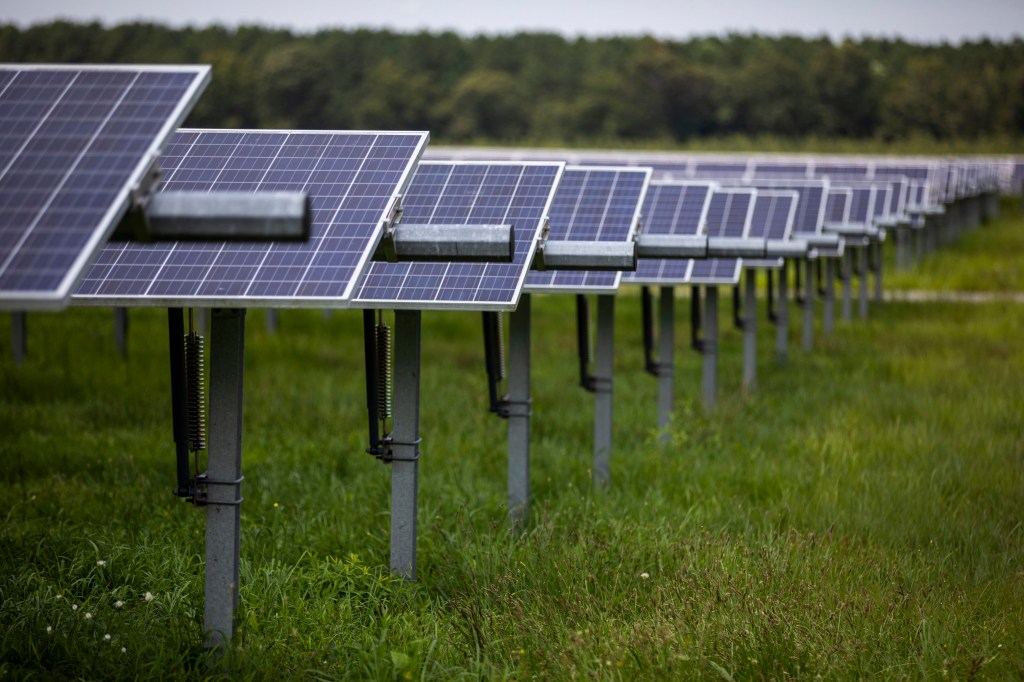Solar and farming
Re “Solar growth asks too much of Virginia’s rural communities” (Other Views, Jan. 26): A recent opinion piece suggests that solar energy expansion harms Virginia’s agricultural communities. In reality, solar power is not only essential to securing a healthy future but presents a unique opportunity to empower rural economies.
Solar energy and agriculture can work hand-in-hand. Far from being a threat, solar can provide a complementary source of income for farmers, helping them offset the volatility of crop revenue while preserving their land for future generations.
Solar installations offer farmers a temporary use of land that can be returned to agricultural production later, unlike development that permanently removes farmland. Farmers can benefit from a 30% federal solar tax credit as well as depreciation, making the transition a financially sound option. This solution is particularly relevant as Virginia’s farmland continues to shrink. Farming can be integrated with solar, known as agrivoltaics. Virginia recommends plants for solar farms in their Pollinator Smart program.
Rather than losing land that has been in families for generations, farmers can adopt solar to help maintain their property, keep it productive, and provide a steady source of income.
By embracing solar, Virginia’s farmers can not only help combat climate change but also ensure the long-term viability of their land. Solar and agriculture can coexist to ensure a sustainable future for Virginia’s rural communities.
Ruth M. Amundsen, Norfolk
Mortgage rates
Many people seem puzzled about the increase in mortgage rates in light of recent rate reductions by the Federal Reserve. We are getting a front seat view of applied economics. Despite all the attention given the Fed, the only interest rate they directly control is the Federal Funds rate. This is simply a target rate set by the Federal Open Market Committee to indicate how much banks should charge to borrow money from one another overnight.
Changes made to the Fed Funds rate may affect short-term loans, but it has no direct bearing on mortgage rates. Mortgage loans are long-term assets funded through the global bond market. If the market expects inflation to rise in the future, investors will require higher rates of return on long-term investments such as mortgages. Since 2020, our government has flooded the economy with stimulus. Too much government stimulus creates long-term inflationary pressure. Let’s not forget that investors require a higher return for higher risk.
Our accumulated debt is now running at approximately 123% of our gross national product. The U.S. is slowly but surely becoming a poor credit risk. If investors see our national credit card getting more impossible to repay, coupled with a continuation of policies that cause inflation to be baked into our future, then it is no surprise when lenders and investors require higher rates on mortgage loans regardless of what the Fed does.
Pat Hillard, Norfolk
Disrespectful
President Donald Trump’s behavior is deplorable. His disrespect of Gen. Mark Milley, a four-star general and former chairman of the Joint Chiefs of Staff, is reprehensible. He is not a king or a dictator, even though he stated he would be a dictator on day one.
He is a bully and a spineless example of a leader. How petty for him to go after an amazing man who has spent his life serving our country. Trump is like a petulant child who is getting even because he didn’t get his way in the sandbox. Trump has no reason to remove Milley’s portrait from the Pentagon, attempt to reduce his rank, strip his security detail or lie to dishonor him.
If Trump can’t behave as a leader, perhaps he can go back to his reality TV show. I am so ashamed of what is happening in our country.
Vivian M. Reynolds, Newport News



